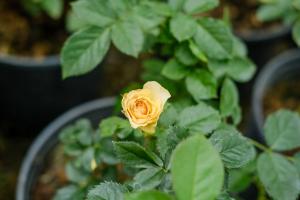Understanding Plant Patents
Plant patents are a type of intellectual property right granted to inventors and breeders who have created or discovered new and distinct plant varieties. These patents provide the exclusive ability to exclude others from producing, selling, or using the plant for a period of 20 years from the date of filing. But what exactly is a plant patent and how does the process work? Let's take a closer look.
What is a Plant Patent?
A plant patent, as defined by the United States Patent and Trademark Office (USPTO), is a legal grant that gives the owner exclusive rights to make, use, and sell an invention for a period of 20 years. In the case of plant patents, the invention is a new and distinct variety of plant that has been asexually reproduced.
This means that the plant has been created through methods like grafting or cutting, rather than through fertilization. Examples of plants that can be patented under this process include new varieties of fruits, flowers, and vegetables.
The Process of Obtaining a Plant Patent
The process of obtaining a plant patent involves several steps, starting with filing an application with the USPTO. This application should include a detailed description of the plant, along with information on its originality, uniqueness, and method of asexual reproduction.
Once the application has been reviewed and accepted by the USPTO, a patent examiner will be assigned to review the application in more detail. This examination process typically takes around 18 months, during which time the examiner will look for prior art or any other reason why the patent should not be granted.
If the examiner determines that the plant is indeed new and distinct, and that there is no prior art that could invalidate the patent, it will be granted. The patent holder will then have the exclusive right to use, make, and sell the plant for a period of 20 years from the date of filing the application.
The Benefits of Plant Patents
Plant patents offer several benefits to inventors and breeders, including the ability to protect their unique plant varieties from being copied or stolen by others. This can be especially important in the agriculture industry, where patented plant varieties can provide a significant competitive advantage.
For consumers, plant patents can also offer benefits in the form of increased availability of new and distinct plant varieties. Without plant patents, inventors and breeders may be less likely to invest the time and resources necessary to develop new plant varieties, which could limit the availability of fresh and unique fruits, vegetables, and other plant-based products.
Conclusion
Plant patents are a valuable tool for inventors and breeders looking to protect their unique plant varieties and gain a competitive advantage in the market. By protecting these varieties, plant patents can also benefit consumers by increasing the availability of new and diverse plant-based products.

 how many times do yo...
how many times do yo... how many planted tre...
how many planted tre... how many pine trees ...
how many pine trees ... how many pecan trees...
how many pecan trees... how many plants comp...
how many plants comp... how many plants can ...
how many plants can ... how many plants and ...
how many plants and ... how many pepper plan...
how many pepper plan...































